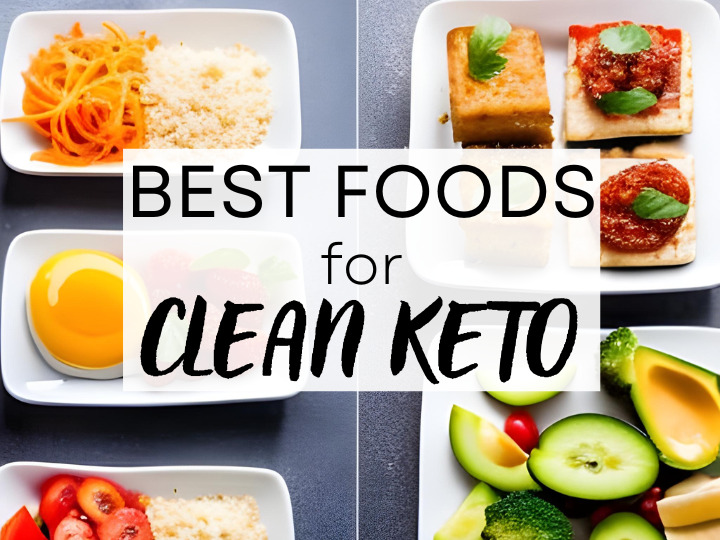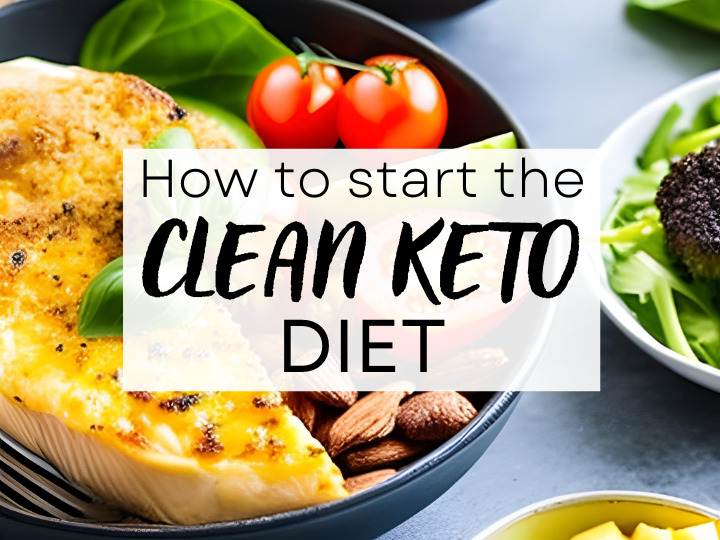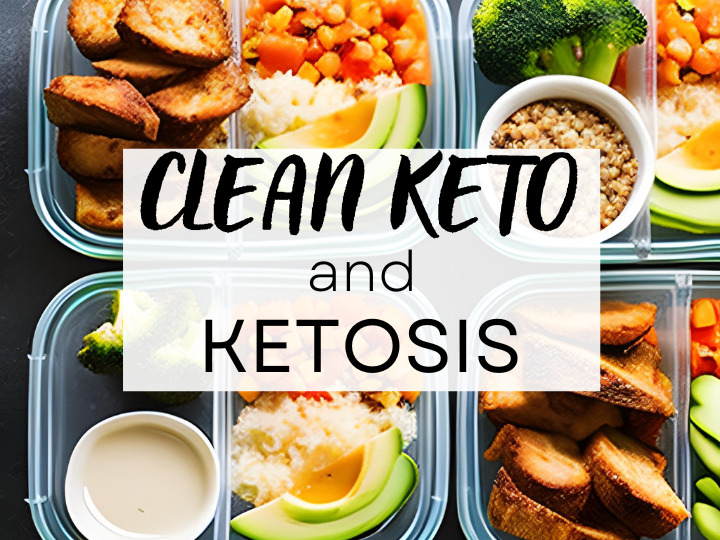
How to Stay in Ketosis on Clean Keto: Cracking the Code

Written by Brandon
April 20, 2023
Clean keto is a popular diet that involves consuming healthy, whole foods while keeping carbohydrate intake low enough to stay in ketosis. While this way of eating can have many health benefits, it can be challenging to maintain ketosis consistently. In this article, we’ll discuss how to stay in ketosis on clean keto and share some tips and tricks to help you reach your goals.
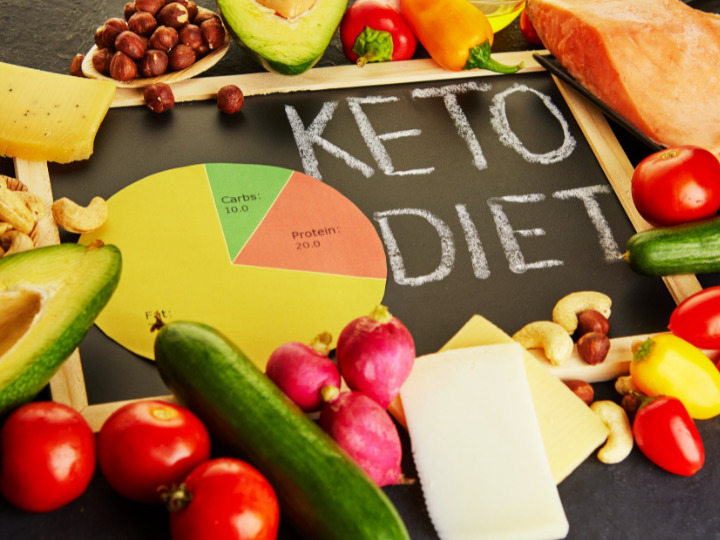
What is Ketosis and why is it Important?
So the real question is: how to stay in ketosis? Ketosis is a metabolic state in which the body burns stored fat for fuel instead of carbohydrates. This process occurs when the body’s glycogen stores are depleted and there is not enough glucose available for energy. As a result, the liver begins to convert stored fat into molecules called ketones, which can be used by the body for energy.
Ketosis is important because it allows the body to efficiently burn fat for energy, which can lead to weight loss and improved body composition. It also has potential benefits for certain medical conditions, such as epilepsy, type 2 diabetes, and certain neurological disorders.
However, it is important to note that ketosis can also be dangerous if it occurs in people with certain medical conditions, such as type 1 diabetes or liver disease. It is important to talk to a healthcare provider before attempting to achieve ketosis through diet or other methods.
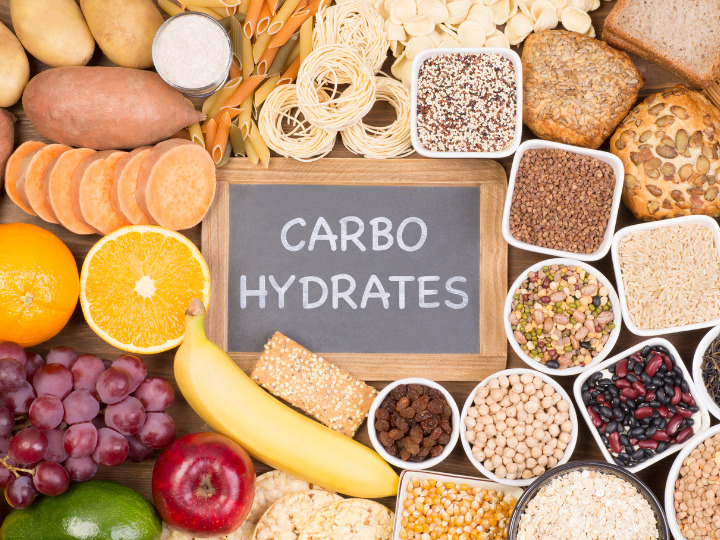
The Role of Carbohydrates in Ketosis
Carbohydrates play a significant role in the process of ketosis. When we consume carbohydrates, our bodies convert them into glucose, which is the primary source of energy for our cells. However, when we restrict our carbohydrate intake, our bodies begin to use stored glucose for energy. Once our glucose reserves are depleted, our bodies turn to fat stores for energy, which leads to the production of ketone bodies.
Carbohydrates are also important for maintaining muscle glycogen stores, which are essential for athletes and individuals engaging in high-intensity exercise. However, excessive carbohydrate consumption can prevent the body from entering ketosis, as it will continue to rely on glucose for energy.
The key to learning how to stay in ketosis is to carefully balance carbohydrate intake with fat and protein consumption. This is typically achieved through following a low-carbohydrate, high-fat diet, such as the clean keto diet, which limits carbohydrate intake to 20-50 grams per day. By keeping carbohydrate intake low, the body is forced to rely on fat for energy, resulting in ketosis.
Strategies for Staying in Ketosis
Staying in ketosis on clean keto requires dedication and consistency. By following these strategies, you can learn how to stay in ketosis and reap the benefits of clean keto. Remember, consistency is key! If you would like to check out the Best Clean Keto Meal Plan then follow the link to our complete guide.
- Track your macronutrients: To stay in ketosis, you need to maintain a specific ratio of macronutrients. Tracking your intake of carbs, protein, and fat can help you stay within the right range.
- Plan your meals: Planning ahead can help you make sure you have the right foods on hand and avoid temptation. Meal prep can be a great way to stay on track.
- Choose high-quality, nutrient-dense foods: Focus on whole, unprocessed foods that are high in healthy fats and low in carbs. This will help you stay in ketosis while also getting the nutrients your body needs.
- Avoid hidden sources of carbs: Many foods contain hidden sources of carbs, such as sugar or starch. Be sure to read labels carefully and avoid foods that could knock you out of ketosis.
- Exercise regularly: Regular exercise can help you stay in ketosis by using up glycogen stores and promoting fat burning.
- Stay hydrated: Drinking plenty of water can help you stay in ketosis by flushing out toxins and supporting your metabolism.
- Consider intermittent fasting: Fasting can help your body enter and stay in ketosis by depleting glycogen stores and promoting fat burning.
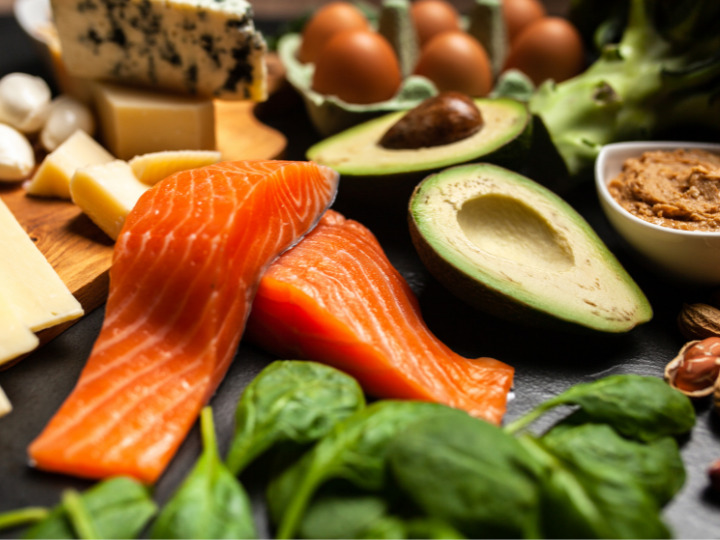
Foods to Eat on Clean Keto to Stay in Ketosis
Eating the right foods is essential to learn how to stay in ketosis on clean keto.
- Healthy Fats: Focus on consuming healthy fats like avocados, coconut oil, olive oil, nuts, and seeds. These healthy fats are rich in nutrients and can help you stay full for longer periods.
- Non-Starchy Vegetables: Eating non-starchy vegetables like spinach, broccoli, cauliflower, and kale can provide essential vitamins and minerals to your body.
- Protein: Eating adequate amounts of protein is important for maintaining muscle mass and staying in ketosis. Include protein-rich foods like eggs, chicken, fish, and beef in your diet.
- Berries: Berries like strawberries, raspberries, and blackberries are low in carbs and can be eaten in moderation on clean keto.
- Dairy Products: Dairy products like cheese and butter can be consumed in moderation on clean keto. Just make sure to choose high-fat and low-carb options.
- Nuts and Seeds: Nuts and seeds like almonds, chia seeds, and flaxseeds are a good source of healthy fats and can be eaten in moderation.
- Beverages: Water should be your primary beverage while on clean keto. You can also include tea, coffee, and bone broth in your diet.
Remember, it’s important to avoid processed foods, grains, and sugars while on clean keto. By incorporating these foods into your diet, you can stay in ketosis and reap the benefits of this eating plan.
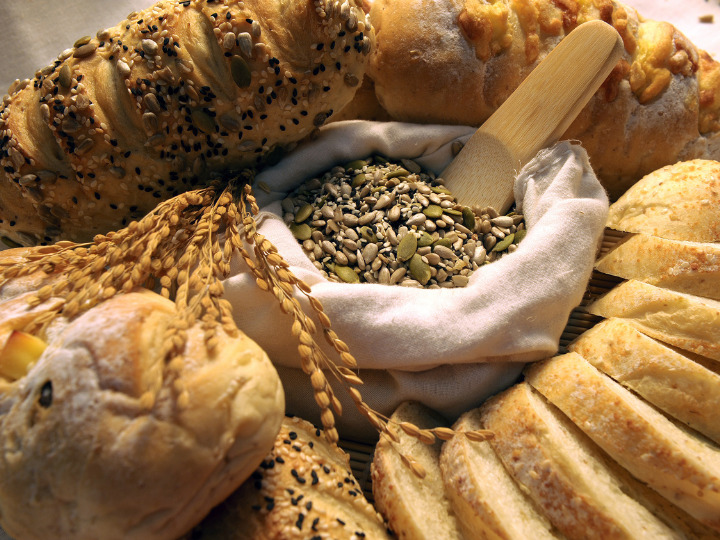
Foods to Avoid on Clean Keto to Stay in Ketosis
When following a clean keto on a budget, it’s important to be mindful of the foods you’re consuming to ensure you stay in ketosis. Learn which foods answer how to stay in ketosis the best below.
- High-carb fruits: While fruits are generally considered healthy, some are higher in carbs than others. Avoid fruits like bananas, grapes, mangoes, and pineapples as they are high in sugar and can kick you out of ketosis.
- Grains and legumes: Grains and legumes like wheat, rice, corn, beans, and lentils are high in carbohydrates and should be avoided on clean keto. Instead try Clean Keto for Vegetarians to get some ideas for better food choices..
- Sugars and sweeteners: All forms of sugar, including honey, maple syrup, and agave, should be avoided on clean keto. Artificial sweeteners like aspartame, saccharin, and sucralose may also be detrimental to your health and should be used sparingly.
- Processed foods: Processed foods like chips, crackers, and candy are often high in carbs and low in nutrients. They should be avoided on clean keto as they can throw off your macronutrient balance.
- Alcohol: Most alcoholic beverages are high in carbs and can quickly kick you out of ketosis. Beer, wine, and sweet cocktails should be avoided on clean keto.
By avoiding these foods and focusing on nutrient-dense, low-carb options like leafy greens, healthy fats, and protein sources, you can stay in ketosis and reap the benefits of a clean keto diet.
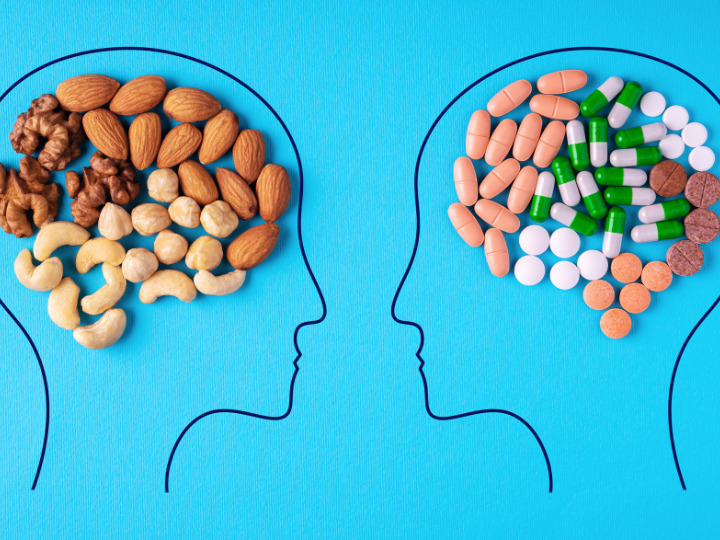
Supplements for Staying in Ketosis
Supplements can be a helpful tool to support learning how to stay in ketosis on clean keto diet. Here are some supplements to consider:
- MCT Oil: Medium chain triglycerides (MCTs) are a type of fat that is quickly converted into ketones, making them a great supplement for supporting ketosis. MCT oil can be added to coffee, smoothies, or used as a salad dressing.
- Exogenous Ketones: Exogenous ketones are ketones that are taken externally, usually in the form of a powder or drink mix. They can help raise ketone levels in the blood and support staying in ketosis.
- Electrolytes: On a low-carb diet like clean keto, it’s important to ensure adequate electrolyte intake. Supplementing with sodium, potassium, and magnesium can help prevent electrolyte imbalances and support overall health.
- Fiber: While fiber is a carbohydrate, it is not digested by the body and does not impact ketosis. Adding a fiber supplement like psyllium husk can help support digestion and keep you feeling full.
- Probiotics: A healthy gut is important for overall health and can support weight loss efforts. Taking a high-quality probiotic supplement can help maintain gut health and support ketosis.
It’s important to note that while supplements can be helpful, they should not be relied on as the sole method for staying in ketosis. A clean keto diet that is high in healthy fats, moderate in protein, and low in carbohydrates is the best way to support ketosis. Supplements should be used in conjunction with a healthy diet and lifestyle.
Common Mistakes to Avoid
When following a beginners clean keto diet, it’s important to avoid certain mistakes that can hinder your progress and make it difficult to stay in ketosis. Here are some common mistakes to avoid:
- Consuming too many carbs: One of the biggest mistakes people make on a clean keto diet is consuming too many carbs. Even healthy foods like fruits, starchy vegetables, and grains can quickly add up and push you out of ketosis. It’s important to track your carb intake and stick to a low-carb diet.
- Not getting enough fat: In order to learn how to stay in ketosis, your body needs to burn fat for fuel. If you’re not consuming enough fat, you may not be able to maintain ketosis. Make sure you’re eating plenty of healthy fats like avocado, nuts, and coconut oil.
- Not eating enough protein: While it’s important to keep your carb intake low, you also need to make sure you’re getting enough protein to support muscle growth and repair. Aim for a moderate protein intake and choose high-quality sources like grass-fed beef, wild-caught fish, and organic eggs.
- Not staying hydrated: Dehydration can cause a variety of problems, including headaches, fatigue, and constipation. Make sure you’re drinking plenty of water and electrolyte-rich beverages to stay hydrated.
- Overeating: While it’s important to consume enough calories to support your body’s needs, overeating can lead to weight gain and other health problems. Pay attention to your body’s hunger and fullness cues and try to eat slowly and mindfully.
FAQs About Staying in Ketosis on Clean Keto
What is ketosis, and how does it work?
Ketosis is a metabolic state that occurs when your body shifts from using carbohydrates as its primary fuel source to using fat. When you eat carbohydrates, your body breaks them down into glucose, which is used for energy. However, when you restrict your carbohydrate intake, your body runs out of glucose and turns to stored fat for fuel.
Ketosis can be achieved through a low-carbohydrate, high-fat diet, such as the ketogenic diet. The ketogenic diet typically consists of 70-80% fat, 10-20% protein, and 5-10% carbohydrates. By following this diet, you can force your body into a state of ketosis and reap the many benefits of this metabolic state.
How do I know if I’m in ketosis?
There are several ways to tell if you are in ketosis. The only way to know for sure is to use certain tests that will tell you if you are in ketosis or not. These tests include urine tests, blood tests, and breath tests.
How long can I stay in ketosis?
The length of time that someone can stay in ketosis depends on several factors, including their individual metabolic rate, activity level, and the specific dietary approach being used.
For most people, it takes a few days to a week of following a low-carbohydrate, high-fat diet to enter ketosis. Once in ketosis, some people may experience what is known as the “keto flu,” which is a collection of symptoms that can include fatigue, headaches, and nausea. These symptoms usually resolve within a few days to a week as the body adjusts to using ketones for fuel.
Once you are in ketosis, you can remain in this state for as long as you continue to follow a ketogenic diet.
What is clean keto, and how is it different from traditional keto?
Clean keto is a variation of the traditional ketogenic diet that emphasizes whole, nutrient-dense foods while limiting processed and artificial ingredients. The goal of clean keto is to not only achieve and maintain a state of ketosis, but also to promote overall health and wellbeing.
The traditional ketogenic diet is high in fat, moderate in protein, and very low in carbohydrates, typically allowing for 20-50 grams of carbs per day. While the traditional ketogenic diet does not necessarily restrict certain types of food, many people on this diet tend to rely heavily on processed foods such as bacon, cheese, and other high-fat, low-carb products.
How do I maintain my ketone levels when eating out or traveling?
Maintaining ketone levels while eating out or traveling can be challenging, but with a little planning and preparation, it is possible to stay in ketosis.Try researching restaurants ahead of time and modifying food to eliminate buns and other starches as well as substituting pasta and potato sides for vegetables.
Can I have dairy on clean keto?
Yes, dairy is allowed on clean keto as long as it’s full-fat and unprocessed.
Can I drink alcohol in Ketosis?
Alcohol should be limited on clean keto, especially beer and sweetened cocktails.
Can I have cheat meals while in Ketosis?
Cheat meals can kick you out of ketosis, so it’s best to avoid them if possible.
Conclusion
Staying in ketosis on clean keto requires a combination of a low-carb, high-fat diet, regular exercise, and an understanding of how your body responds to different foods and activities. By following the tips and strategies outlined in this article, you can achieve and maintain a state of ketosis and reap the many health benefits that come with it.
Remember to focus on consuming healthy fats, protein, and low-carb vegetables, while avoiding processed foods, high-carb foods, and excessive amounts of protein. Stay hydrated, get enough electrolytes, and consider supplementing with exogenous ketones or MCT oil if necessary. And most importantly, listen to your body and make adjustments as needed to find what works best for you.
With dedication and consistency, you can successfully stay in ketosis on clean keto and experience the many benefits that come with this state of metabolic efficiency.
About the Author
 Hello, I'm Brandon, a passionate foodie, clean keto enthusiast, and creator of Clean Keto Meal Plan. I'm dedicated to providing delicious and nutritious recipes that fit within a keto lifestyle. I strive to create meals that are not only low-carb, but also use clean, whole food ingredients for optimal health and wellness. Join me on my journey towards better health through clean eating and a keto lifestyle.
Hello, I'm Brandon, a passionate foodie, clean keto enthusiast, and creator of Clean Keto Meal Plan. I'm dedicated to providing delicious and nutritious recipes that fit within a keto lifestyle. I strive to create meals that are not only low-carb, but also use clean, whole food ingredients for optimal health and wellness. Join me on my journey towards better health through clean eating and a keto lifestyle.
Affiliate Disclosure:
This post may contain affiliate links. Click here for the full disclosure statement.


